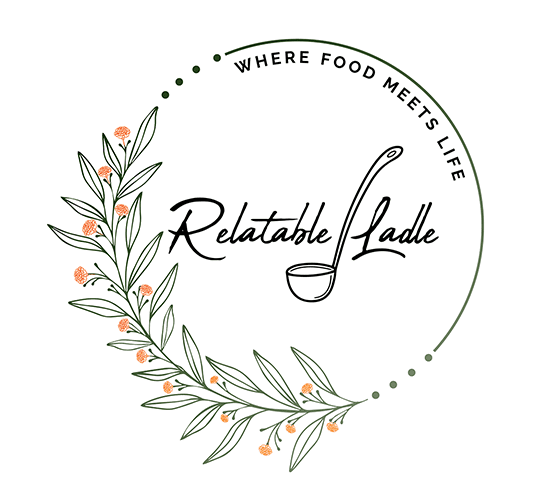Whether or not you truly are one, this people pleaser test will give you questions to reflect on how you can start towards a healthier journey of personal growth without needing to use people pleasing behaviors.
We were raised to put our parents’ needs and desires first, but not in a typical way. Our families suffered from personality disorders and enmeshment, so our independence was limited, if it at all existed.
We learned to please people as a way to cope and survive. However, your story can be something other than ours to be a people pleaser. This mechanism occurs for several reasons.
Personal needs and authenticity often take a back seat when an individual strives for approval (Psychology Today). This validation-seeking behavior significantly impacts mental wellness and can erode the quality of relationships.
Addressing this tendency will ensure personal growth and healthier relationships. Mastering assertiveness and establishing personal boundaries can lead to self-discovery, self-respect, and empowerment. First, take the test to see if you are a people pleaser.
People Pleaser Test
The below test has 24 questions. Let’s begin!

If the results of your people pleaser test indicate that you’re likely to be one, then you may want to understand how this came to be and try the below methods towards reducing people pleasing behaviors.
Causes of People Pleasing
- Childhood Conditioning: If you grew up with parents with high expectations or are overly critical, you may cope by pleasing others to avoid criticism or gain approval. In some situations, you may have had to assume the role of peacemaker in households with conflict or emotional instability.
- Personality Traits: Highly empathetic people may be more susceptible to people-pleasing because they are attuned to others’ feelings and discomfort. Individuals with low self-esteem may also seek external approval to feel valued and accepted.
- Social and Cultural Influences: People-pleasing behaviors can stem from cultures that strongly emphasize community and social harmony. Societal norms have traditionally influenced women to be more accommodating and nurturing, which can lead to people-pleasing.
- Fear of Rejection or Conflict: The fear of conflict may cause individuals to go to great lengths to avoid it, even if it means compromising one’s needs and desires. Another fear, rejection, can drive people to use such behaviors to secure acceptance and belonging.
- Past Trauma: Sadly, abusive or controlling relationships can cause the coping mechanism to develop and avoid further harm. Individuals may have a strong desire to keep peace out of hyper-vigilance to avoid triggering negative situations.
- Perfectionism: To maintain self-image and avoid criticism, perfectionists may engage in people-pleasing. People will also avoid failure or making mistakes by going out of their way to meet others’ expectations.
- Psychological Factors: Managing anxiety by controlling others’ perceptions can contribute to people-pleasing behaviors. Pleasing people to maintain relationships and feel secure can occur due to insecure attachment developed during childhood.
10 Ways of Breaking Free from Approval-Seeking Behavior
- Self-Reflection: Identify and acknowledge approval-seeking behavior. Journaling can help with reflection.
- Build Self-Awareness: Recognize triggers and understand your own needs apart from others.
- Develop Self-Compassion: Remind yourself of your inherent worth.
- Set Healthy Boundaries: Learn to say no and communicate assertively using “I” statements. Identify what you find acceptable and unacceptable.
- Challenge Negative Thoughts: Replace them with positive, realistic ones, and keep asking yourself if the negative thoughts are factually accurate.
- Build Self-Esteem: Focus on your strengths and do things that make you feel good about yourself.
- Develop Independence: Make decisions alone and try enjoying activities by yourself.
- Seek Professional Help: Therapy or support groups can provide personalized guidance and shared experiences.
- Practice Mindfulness: These techniques will help with self-acceptance.
- Gradual Exposure: Take small steps to face your fears in approval-seeking situations and evaluate your progress regularly.
Embracing Affirmations to Combat People Pleasing
Positive affirmations can provide a renewed sense of assertiveness and self-respect. Crafting and repeating affirmations can transition a mindset of external validation to empowerment and independence.
In crafting affirmations, target where you crave approval or fear rejection. Focus on yourself rather than reflecting the expectations of others. Affirming one’s worth and capabilities can challenge and eventually replace the negative self-beliefs behind people-pleasing behaviors. Below are some examples:
- My self-worth does not depend on others’ approval. I want to seek happiness from within rather than from external sources.
- Setting boundaries protects my mental health. I can maintain personal space and foster healthy relationships.
- Assertiveness is my right. I can have open communication.
- I embrace my genuine self, free from other’s opinions. I break free from conformity and let my authentic self shine.
- Facing fears is the gateway to personal power. Confronting them strengthens my resilience and self-confidence.
- Procrastination will not hold me back. Overcoming it paves the way for achievement and progress.
- Every experience offers a lesson for growth.
- Resentment is replaced with understanding and forgiveness.
Embracing Your Genuine Self
Shed the layers of people pleasing, face fears, and set boundaries. The rewards are substantial. Life becomes aligned with true desires rather than the expectations of others, and your power is amplified. Imagine your needs, opinions, and desires are valid and non-negotiable. Play it safe will give way to a courageous quest for personal growth, where each experience contributes to a more prosperous, rounded existence.
Did you Take the People Pleaser Test?
Please drop us a comment below. You might be interested in our article on being “too much” or why people are rude to nice people.
Disclaimer: All content and information on this website including our recipes and blog articles is for informational and educational purposes only and does not constitute medical, psychological, or health advice (for that please always seek the help of a professional in these areas). We do not warrant that the information presented herein is free of any errors or omissions although we do our best to provide information backed by research.


